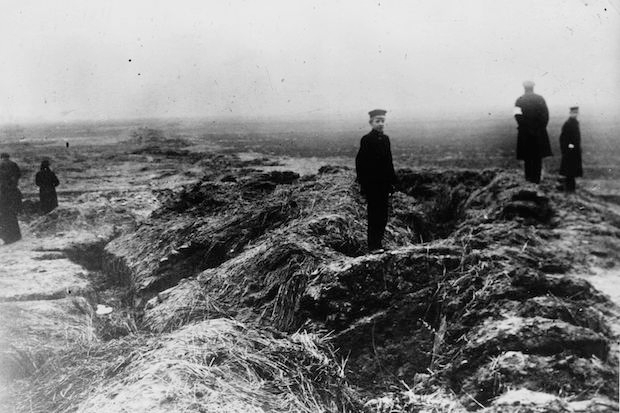From ‘The Inexpugnability of Russia’, The Spectator, 26 June 1915:
In dealing with the military problems which confront Russia we must never forget the size and the thickness of her Empire. It is like an enormous cloak. The fringe may get very ragged, and you may cut huge pieces out of it before and behind, but so vast are its dimensions that it will still remain for all purposes of warmth and security a perfectly serviceable garment. Pieces cut from it are hardly noticed—pieces which if cut from a smaller coat would leave nothing but a collar and a pair of sleeves. That is why the duration of war, which is so dangerous to smaller and more concentrated States, affects Russia so little. Short wars are her danger. Long wars only prove her strength. At this moment, after nearly a year’s fighting, Russia is only just beginning to be mistress of her resources in men and munitions. The hardy soldiers of her Far Eastern provinces are in many cases only just beginning to be got ready for the firing line. But though Russia is slow “she gets there just the same.” Her hundred and seventy millions of population have not yet really begun to make their presence felt in Poland, though we may be sure that they will do so before many months have passed. The giant limbs are stirring, even though the giant is not yet properly awake. Therefore let there be no hysterical talk about Russian débâcle or crushing German and Austrian victories merely because the Russians have walked out of Lemberg as they walked out of Przemysl, and as quite conceivably they may walk out of Warsaw. The Russians are not worried about it, although they not unnaturally feel annoyed at the want of understanding of the true position shown here and in France. But if they do not worry, why should we do so ? There is something ungentlemanly and ill-bred in offering condolences with streaming eyes and drawn face to a man who is taking his punishment like a hero. Do not let us begin to mourn for Russia till she mourns for herself. The only effect of Russian reverses in Petrograd and Moscow is to make the people harden their hearts and determine to do better next time. Let us, then, thank Heaven for allies so heroic, and not perturb or disgust them by even the best-meant lamentations. Rather let us thank them from our hearts because, like the Roman General of old, they “have not despaired of the Republic.”






Comments